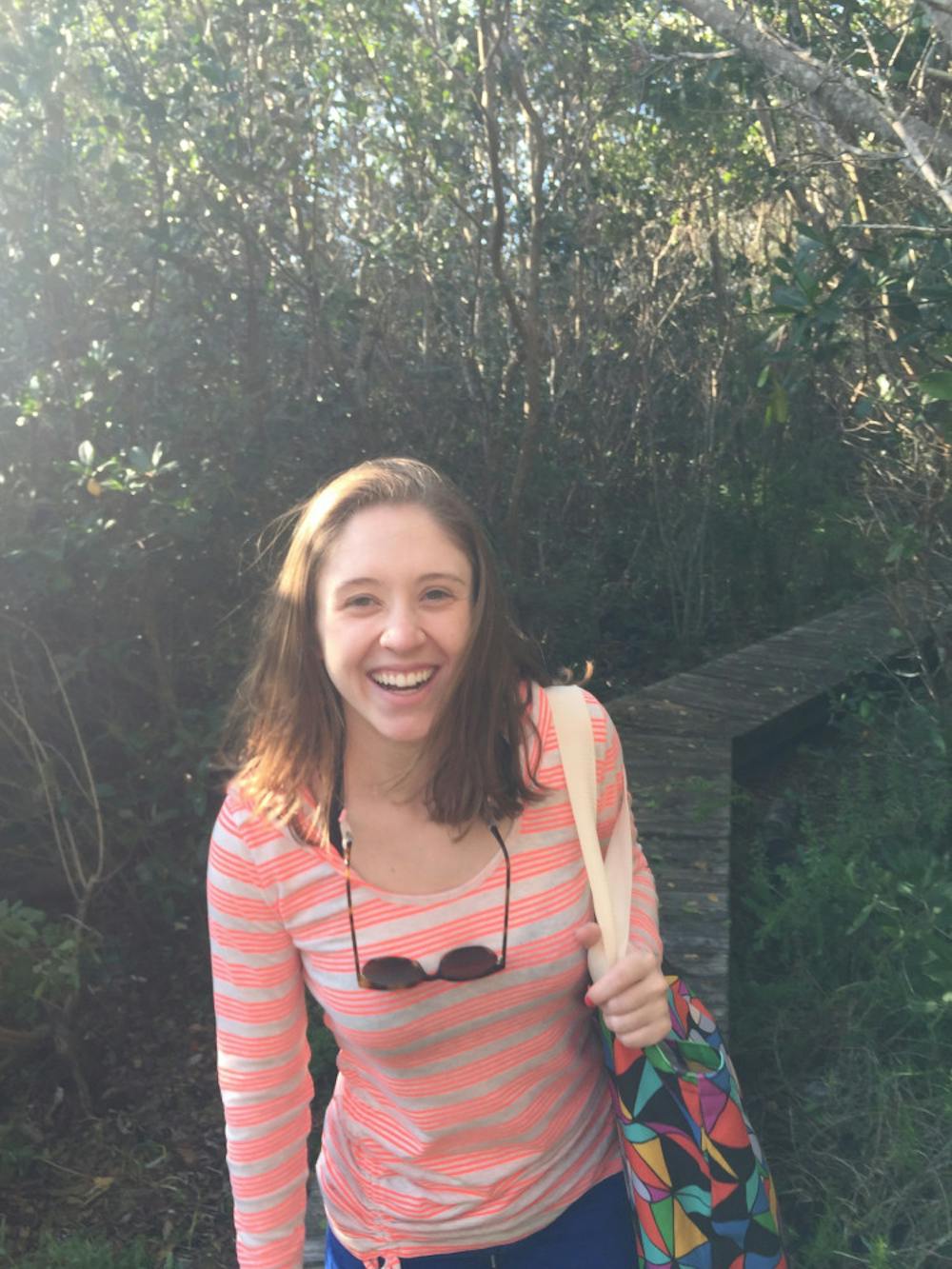Some of my earliest childhood memories take place in Geoff’s Superlative Sandwiches. I am eye-level with the huge anthropomorphized sandwich painted on the front counter. The sandwich and I are staring at each other and graffiti covers the brick walls. During rides up and down New England, my family would exit the highway at Providence just to eat at Geoff’s.
As a child, I danced to Dave Binder at my mom’s Brown reunions, and I had NO IDEA about the importance and ubiquity of this Brown tradition. When Spring Weekend of my freshman year arrived, so did the joyous moment when I learned that his “Unicorn” song was not just part of Binder’s kids-oriented repertoire but a ritual loved by many.
My mental map of Brown — my own perception of the place — has always been tied to my mother, Beth Davis, a proud 1978 alumna. As I learned in high school geography class, our mental map of a locale is drawn by our unique knowledge of the place and determines the way we navigate the terrain. When I was a scared and lonely freshman, Brown felt slightly less like terra incognita because someone who loved me had lived here. When I talked to my mom on the phone and told her I was walking by the corner of George and Brook Streets and knew that she could picture exactly where I was, I felt looked-after. When my parents drove up to visit and my mom knew how to navigate Providence’s hell of one-way streets, Brown seemed more manageable. My millennial mind zoomed out on my mental map and my mom’s knowledge formed dropped pins on the map, contact points that tethered my college life to the familiar.
At the beginning of my junior spring, the breast cancer that my mom had been living with for nearly a decade finally spread to her brain. She died within four months. Suddenly, everywhere was terra incognita. I returned to Brown in the fall and tried to act normal, but I felt naked. On the first day of classes, I held back tears while walking down Thayer Street; anxiety racked my chest as I passed by Soldiers Arch. The small secrets of this place that I thought marked it as home — every stubborn door, every root-ripped sidewalk — couldn’t alleviate my panic.
When I had left for college, I had thought my childhood had ended. But after having to abruptly grow up in the span of six months after my mother died, I finally began charting a separate life. I was dropping pins on my mental map that my mother would never know about, and I hated it.
In time, I wrote a thesis (dropping a new pin at the Geo-Chem Building), joined new clubs (J. Walter Wilson) and completed an internship (City Hall). When my mom was alive, I had related our Brown experiences. Then vs. now. A 1970s flavor and a 2010s flavor of the same experience. But I realized that our two versions of Brown-ing were barely comparable. I grew up 120 miles away, close enough that the weather here and the weather at home were the same on any given day. My mom grew up in Nashville with heavy parental pressure to attend college below the Mason-Dixon line. I am a geology concentrator; she never touched a science class. Different campus conversations unfolded; different global tragedies left us reeling and questioning. Physical space was one of the few commonalities the two of us shared.
So when I still feel shaky, I remind myself of what is the same. I try to love the sights through my mom’s eyes. Carrie Tower. Sayles Hall. Pembroke. I latch onto my small collection of her Brown memories. How she and her roommate snuck onto the roof of the old pool, and thus how she liked to credit herself with the roof’s eventual collapse. (I found out from an administrative source that the beams rotted from moisture, but I’m glad my mom never knew.) How she and her housemates invited then-President Howard Swearer over for dinner and he had a grand old time, but his wife dragged him out the door. How she gleefully remembered tripping Caroline Kennedy when the soccer team played Harvard (my mom walked onto the first ever Brown women’s soccer team — thanks, Title IX!). I’m grasping at these snapshots, and I wish I could ask what she remembers from graduation.
Even with a newer layer of pins dropped on my mental map, Brown helps me keep my mom close. To me, she’s tangible here. Leaving here will be a double loss. Before, during and after I learn how it feels to miss her in my next venue, I will keep revisiting the place where we both grew up.





